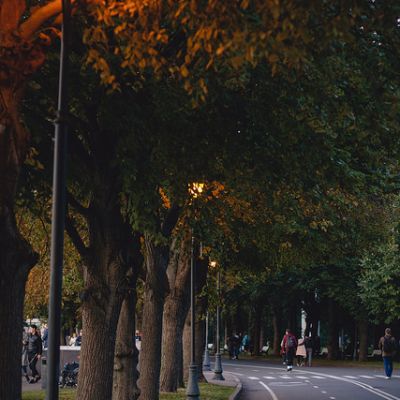Sexuality
Queerness is a free-flowing identity that embraces anyone, including young children, who step off the assigned binary path.
We carve strangers’ words onto our skin
like tattoos to be flaunted while hiding away
everything that we are from within.
“Life’s too small without freshly cut coriander
Generously sprinkled on kadhai chicken.
Mint leaves blitzing their way with tomatoes
Ripe from the vine to the fingers dripping chutney –
Fragrances of earth between all this concrete.”
It was so wonderful when I got sexual pleasure from someone I loved, someone I had fun with, someone I trusted, and someone whom I liked as a person!
On June 27, 2015, the Supreme Court of the United States of America held, “The Fourteenth Amendment requires a state…
While sex sometimes can be fun, and at other times complicated and frustrating –is always love, lust or desire: which one you are signing up for and which one did you want to actually explore?
Six years later (and out of such an abusive relationship), as I sit in a Gender Studies classroom discussing public and private spheres, being introduced to the feminist ideology of the personal being political, I reflect back and see my experiences as emerging from a complex discursive pattern. The peculiar way in which heterosexual romantic relationships are envisaged and the potentiality of them being disruptive of traditional arrangements of companionship requires them to be manifested outside of the four walls of home and family. Yet, one faces a situation of a pathetic lack of safe spaces within the public sphere and the traditional discourse of love being private and contained within the private sphere…
I extend my support and solidarity to people, across the spectrum of gender and sexuality, who want to break closed doors and walls to establish safe spaces where one can love freely, without inhibitions; people who seek to re-define love and intimacy in their own independent, non-patriarchal terms.
SUMMARY Six young men and women, all afflicted by polio, had never thought they would fall in love. Till they…
Even with all the risks that AI poses, it seems a safer bet than humans trying to exploit dating apps to make quick money.
My birthday is in May, a peak time of summer heat in the Awadh region of Uttar Pradesh. We knew that it was going to be hot, but did not have any idea of how bad it could get.
After five months I received a call from Natasha telling me about the content of a WhatsApp chat that Raajveer was having with one of his male teachers. “He is missing his Sir and crying. He is very confused. He sent him roses on chat and reassuring messages saying that he will always be there with his Sir and will never leave him. We are very worried. My husband is not aware of this, and neither do I want to tell him about it. Please help him”, said Natasha over the phone.
I see people and places,
Couples and crushes
I hear giggles and whispers.
These are the secrets untold to me.
The Protection of Children from Sexual Offences Act, 2012 (POCSO Act), defines a ‘child’ to mean ‘any person below the…
From today’s vantage point I see that I missed an opportunity to use PT and sports in school as a way to get to know and move my body. This in turn held me back from viewing myself as a sexual being.















